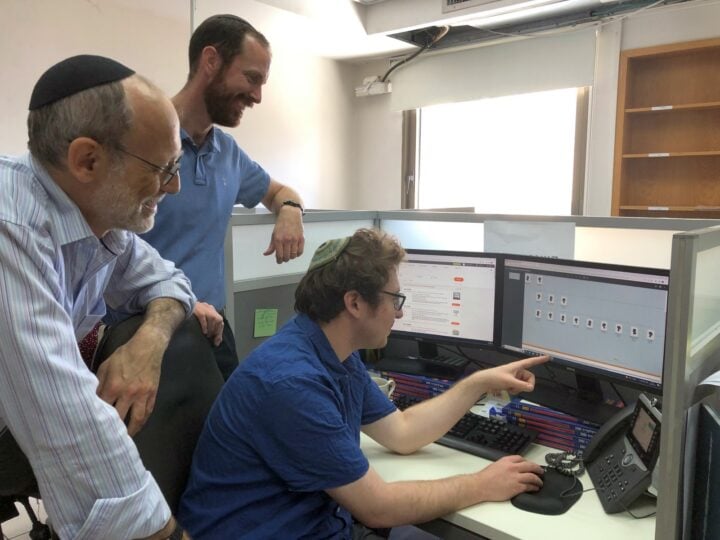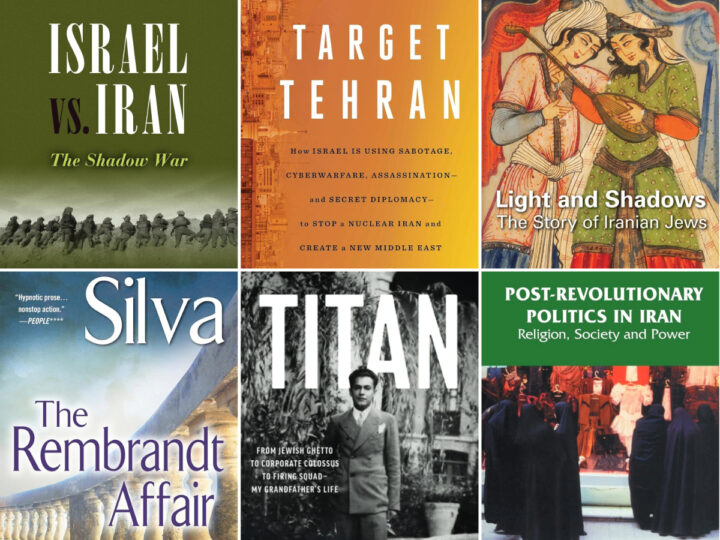One of the joys of working for ISRAEL21c is that our focus is on the positive. While the media generally dwells on all the awful things taking place around the world, we seek out heartwarming stories, the stories of people trying to make a difference and to improve our planet.
It’s a focus I never take for granted. When every day you report on people using their creativity to come up with innovations or solutions that will impact people’s well-being, or help the environment, or enrich our technological world, you receive a daily dose of optimism and hopefulness.
That’s what we all need. In today’s fast news cycle, it’s hard not to be overwhelmed by the negative and it’s easy to forget the goodness that lies at the heart of most people.
As 2019 comes to a close, a year that has not been easy for many people around the world, we decided to look back at the stories that made us the happiest this year and to share them with you.
Some of them moved us, some impressed us, and some just made us smile. All of them gave us hope.
Breakthroughs in health
- Eliminating tumors
Health breakthroughs are always exciting. In January, we covered the company Alpha TAU, which has developed a breakthrough alpha radiation technology that can eliminate cancerous tumors in 70 percent of cases.
In November, the results from the company’s first clinical trial were in – and nearly 80% of 28 patients with squamous cell carcinoma received a complete response rate in managing their tumors. All patients responded to the treatment to some degree. What’s particularly noteworthy is that prior forms of therapy had failed in 61% of the patients.
There’s still a long road ahead, but this is most encouraging news.
- VR in surgery
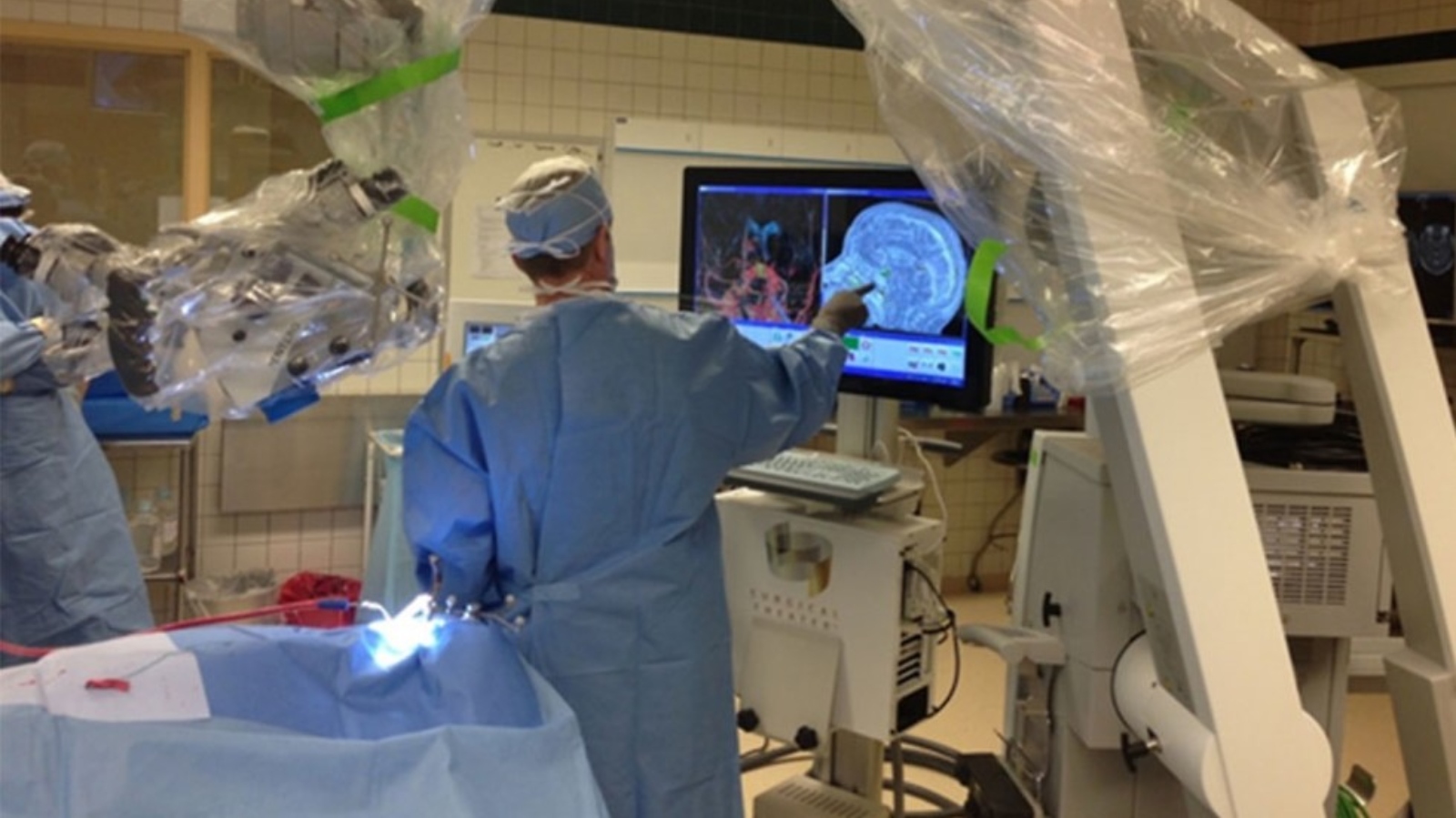
Two-year-old Ari Ellman of San Francisco probably wouldn’t be alive today if it weren’t for revolutionary technology developed in Israel.
Ari had a massive tumor on his brain, and experts at several US hospitals didn’t think it could be removed. But in a historic surgery at Lucile Packard Children’s Hospital of Stanford University this year, surgeons managed to remove the tumor in an endonasal procedure that lasted 18 hours.
The surgeons were able to do it because they rehearsed the risky surgery repeatedly using the Surgical Theater virtual reality system, developed by two former Israel Air Force officers.
The VR system is like a flight simulator. Using a VR headset, surgeons can fly through a 3D digital reconstruction of patient scans to help them plan the procedure and print a 3D model to practice the surgery.
Surgical Theater is now is 15 leading US hospitals, and is also being used for cardiac and spinal surgery preparation.
- Groundbreaking operations
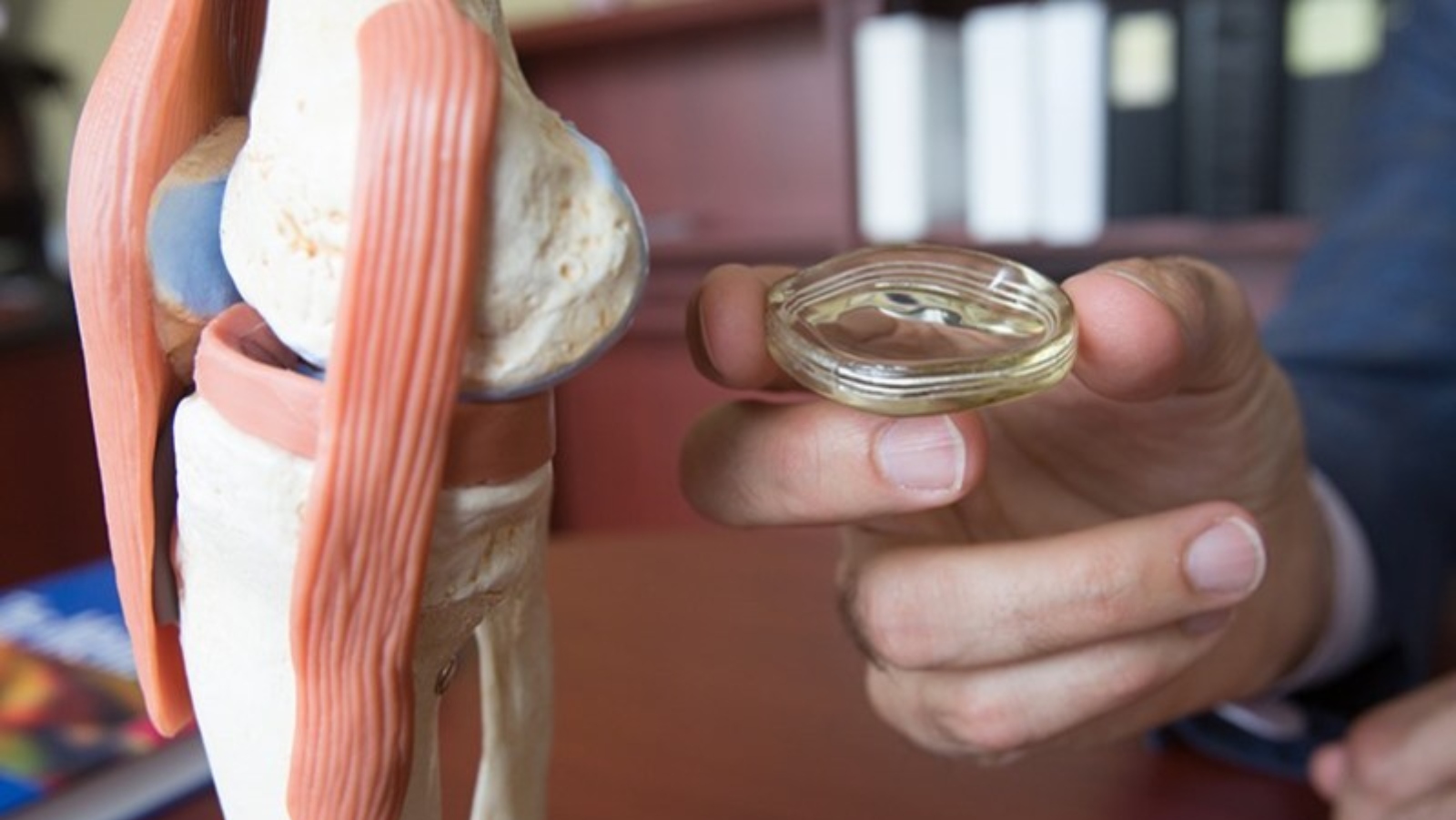
In April, a surgeon at Hadassah University Medical Center in Jerusalem carried out an unprecedented live vein transplant to save 60-year-old Israeli Avi Yavetz from having his leg amputated.
Yavetz, who suffers from peripheral vascular disease (PVD), had an obstruction in the veins and arteries in one of his legs, and no veins suitable for transplant.
Prof. Ron Carmeli, chief of vascular surgery at Hadassah, came up with a crazy solution – he removed a vein from Yavetz’s son, Snir, and transplanted it.
The transplant,the first vein transplant from a living person ever undertaken,was a success.
In November, Israeli surgeons also carried out the world’s first implantation of an artificial meniscus in two Israeli patients.
One operation was performed at Shamir Medical Center, and the other at Ramat Aviv Medical Center.
The NUsurface Meniscus implant was developed at the Netanya R&D center of US-based Active Implants.
- Hope for multiple myeloma patients
Israeli-Massachusetts company Karyopharm was this year awarded FDA approval for XPOVIO, the first drug aimed at helping the body’s natural tumor-suppressing proteins do their job.
XPOVIO (generic name Selinexor) has been approved for multiple myeloma patients who have relapsed and were resistant to at least four prior therapies.
Multiple myeloma, the second most common type of blood cancer after non-Hodgkin’s lymphoma, can be slowed by medication, but ultimately it always returns and progresses. When a patient has gone through all of the available options, there’s nothing left to try. That’s where XPOVIO comes in.
Because of its dire prognosis, multiple myeloma was the starting point for XPOVIO, but it’s far from the end game. Next up the company is looking at lymphoma, uterine cancer and brain cancer.
- A test for stage 1 lung cancer
Israeli company Savicell has developed a simple but revolutionary blood test that can detect stage 1 lung cancer.
Why is this important? Of all cancers, lung cancer is the most deadly because it’s so difficult to diagnose early on. Symptoms don’t begin until the tumor is already quite large, and by then it’s often too late.
Diagnosed at stage 1, however, the survival rate is 80 percent.
The Savicell test, which is not yet commercially available, measures the metabolic signatures of immune cells circulating in the blood. It can diagnose lung cancer in hours, rather than days or weeks. Development and clinical studies continue.
Innovative thinking
- Village in a Box

When Israeli green-construction expert Victor Haym Hajaj was recruited in 2012 to help build housing for 1 million refugees of the civil war in Congo, he had no problem building fast, affordable, earthquake-proof houses, but soon discovered there was no supporting infrastructure to provide water, food or energy.
He decided to create his own.
In 2017, he and Jonathan Haran founded The Sustainable Group. Their flagship project is Village in a Box, a holistic residential renewable energy-based infrastructure system to provide off-grid communities with environmentally friendly affordable housing and clean sustainable solutions for water, food, energy and waste treatment.
A proof-of-concept Village in a Box, with 200 homes, is now under development in the Negev desert town of Mitzpeh Ramon.
“I fell in love with the idea because it represents a big hope for humanity,” Haran told us. “Our aim is to build a better future without hurting the environment.”
- An electric plane

At the Paris Air Show in June, Israeli company Eviation Aircraft unveiled its electric plane, a revolutionary emission-free plane that could usher in a new era of quieter, cleaner and more cost-effective flying.
Called Alice, the streamlined plane seats nine passengers and is planned to cruise at a speed of 260 knots for a range of up to 650 miles.
The plane, designed to reduce operating costs stemming from fuel and oil, is undergoing flight tests and could be available for commercial use as soon as 2022. Its first customer reportedly is Cape Air. In September, Eviation was merged into Clermont Aerospace of Singapore.
According to the International Civil Aviation Organization, 4.3 billion people traveled by air in 2018. That’s a major cause of pollution. Let’s hope the era of electric planes is about to commence.
8. Color matters to fish, and that’s important
Climate change is decimating coral reefs all over the world, and that’s bad news for fish life. Twenty-five percent of fish make their home in these vital living structures.
Now, however, Israeli scientists have figured out a way to print colorful new corals using a 3D printer and sustainable bioplastics.
The new artificial reefs, designed to accurately mimic natural coral, were created by researchers from Ben Gurion University of the Negev, and attached to a natural reef in the Red Sea, near Eilat.
Surprisingly, the fish seemed to like some of the colored artificial designs more than the natural ones.
- Reinventing our cars

Self-driving cars may be just around the corner, but there is one area of car development that has barely changed in over 100 years, according to Daniel Barel, CEO of Israeli automotive startup Ree – the way our cars are manufactured and designed.
No longer. Barel’s company plans to fundamentally change how vehicles are built. REE has invented a modular platform that looks a bit like a hoverboard, which houses the car’s major components – including brakes, thermal systems, motor and drivetrain – right next to the wheels.
The company emerged from stealth mode in the summer, and is already collaborating with Mitsubishi, Toyota’s truck subsidiary Hino Motors, auto-parts manufacturers Musashi Seimitsu, Linamar and Tenneco; and semiconductor leader NXP.
- Water out of thin air
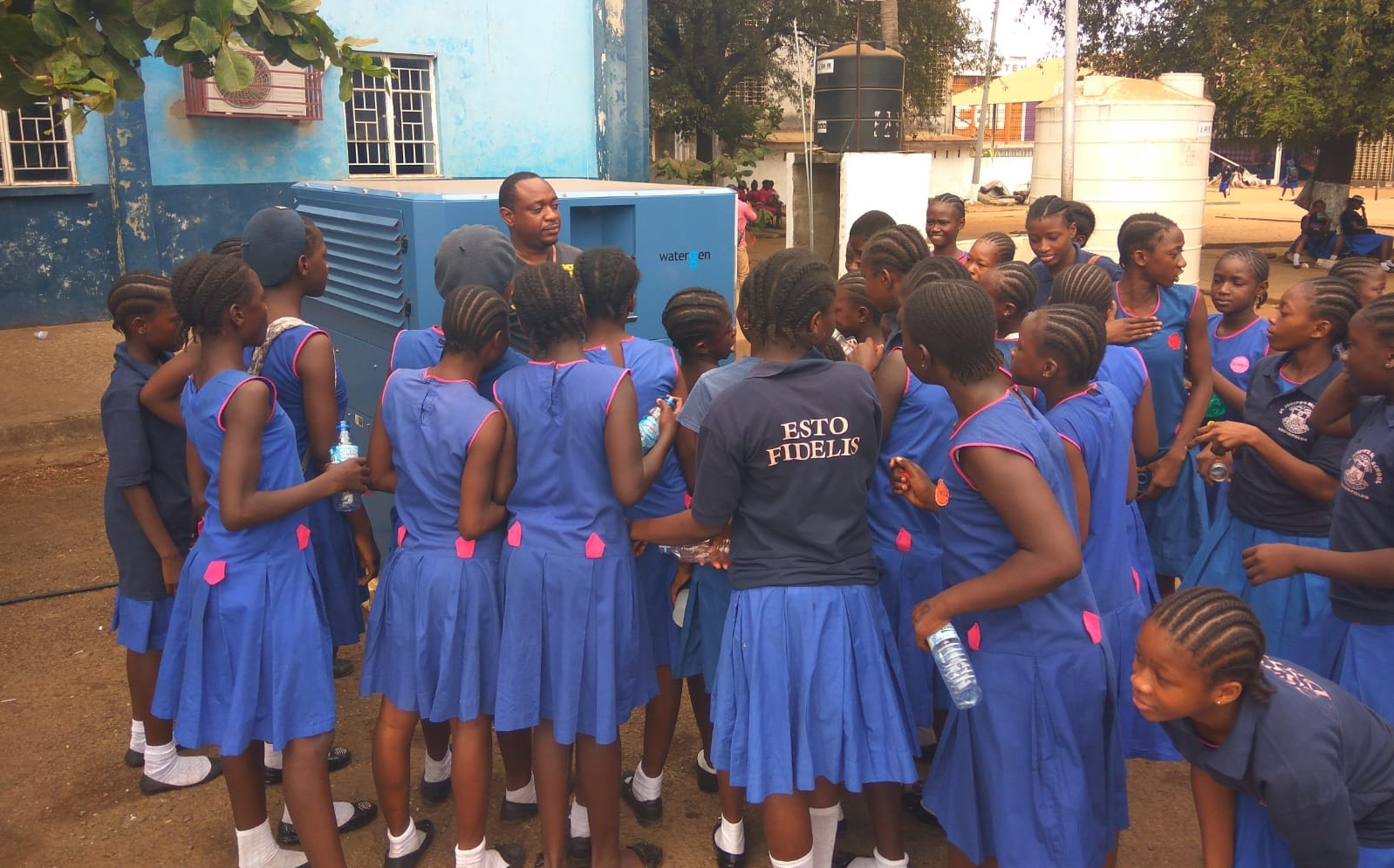
Producing clean water out of thin air is a bit like a magic trick, but that’s exactly what Israeli startup Watergen specializes in. The company’s atmospheric water-generator pulls water from the air every day, and purifies it for safe drinking.
This year, the company donated its technology to a school in Columbia, and to Uzbekistan, Lake Chad, South Africa, and Sierra Leone.
Watergen also has developed a built-in system that produces purified drinking water in your car. The technology, which pulls outside air into the car and filters out all pollutants, has a lot of people excited. The company is now working with Ford.
- A bacteria that could slow climate change

Israeli scientists have developed a new bacteria that can eat carbon dioxide (CO2), creating what could be a powerful potential weapon in the battle against climate change.
The new bacteria was engineered over a decade by scientists from the Weizmann Institute of Science. They first modified the bacteria with genes that can take carbon from CO2 and turn it into protein and other biological molecules, and then coaxed them to switch from their normal food – sugar – to CO2.
The discovery could lead to cleaner energy sources to replace fossil fuels, a basis for future methods to increase food production with less land and produce alternative proteins from renewable sources.
- Honey without bees
With the population of bees in decline, honey could become a rare commodity. Now students from the Technion have found a way to make honey without bees.
The bee-free honey is produced by a bacterium which learns to make honey following reprogramming in a lab. In recognition for their work, the students won a gold medal at the recent iGEM (International Genetically Engineered Machine) competition held in Boston.
Taking care of others
- Helping after the hurricane in Puerto Rico
At ISRAEL21c we love stories about Israelis flying out to help other countries in the wake of disasters, and this year we had a chance to experience this firsthand when we flew out to Puerto Rico and met some of the locals whose lives have been transformed by Israeli humanitarian aid NGO IsraAID.
It was a high point for all of us. We heard so many moving stories about how IsraAID helped people all over the tiny island after Hurricane Maria, the worst natural disaster to hit the Caribbean island.
Puerto Rico wasn’t the only country where IsraAID provided help this year. They also sent aid to the Bahamas and California, to Venezuelan refugees in Columbia and to Mozambique.
What particularly impressed me about IsraAID’s work, after seeing it in action in Puerto Rico, was how the NGO seems to encapsulate the best of Israel, and bring it all over the world. The organization is lean, adaptable and innovative. It thrives in situations of chaos, responds quickly to local needs and is readyto find solutions even when the situation seems impossible.
- Aid all over
IsraAID isn’t the only Israeli NGO providing aid all over the world. There are many other organizations that we are equally proud of. Today, it seems, Israeli NGOs are some of the first responders that people look to in a crisis.
This fall alone, Israel Flying Aid sent aid to women and children in Chad; medical clowns went on a mission to the hurricane-devastated Bahamas; and Israel’s Fire and Rescue Services sent a delegation to help extinguish the catastrophic fires in the Amazon rainforest.
In December, an Israeli medical team flew to Samoa to help with the measles epidemic; and a team of rescue experts from the Israel Defense Forces flew to Albania after the earthquake.
And let’s not forget the work of ZAKA, United Hatzalah, and Magen David Adom.
Truly, a year of doing good.
- A reunion in Ethiopia
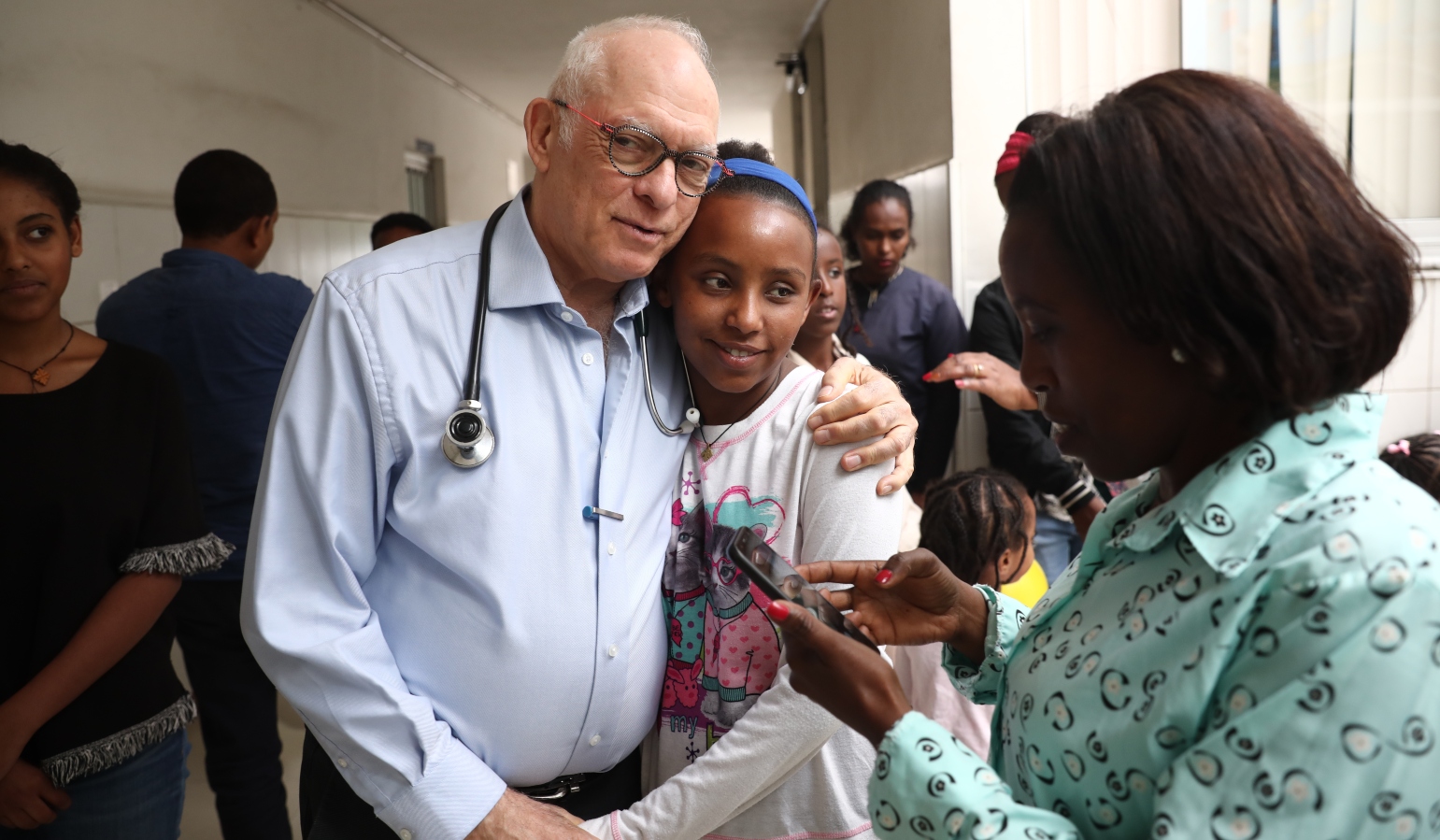
In October, over 100 Ethiopians came together in Addis Abiba for a special 25th anniversary reunion with the Israeli doctors who saved their lives.
The Ethiopians, of all different ages, had all been operated on by the Israeli NGO Save a Child’s Heart, and for many it was the first time since the operation that they met the surgeons.
At the joyful reunion, doctors met Yared, who now runs a school for underprivileged children; Robel, a filmmaker; and Gifti, now a pediatric emergency room nurse. They were just a few of the dozens of people at the event who wouldn’t have made it into adulthood without SACH’s help.
In its 25 years, SACH has carried out lifesaving heart operations for children from 61 countries, some of which don’t even have diplomatic relations with Israel. This year, it also celebrated its 5,000 young patient.
- Breaking a fast and breaking barriers
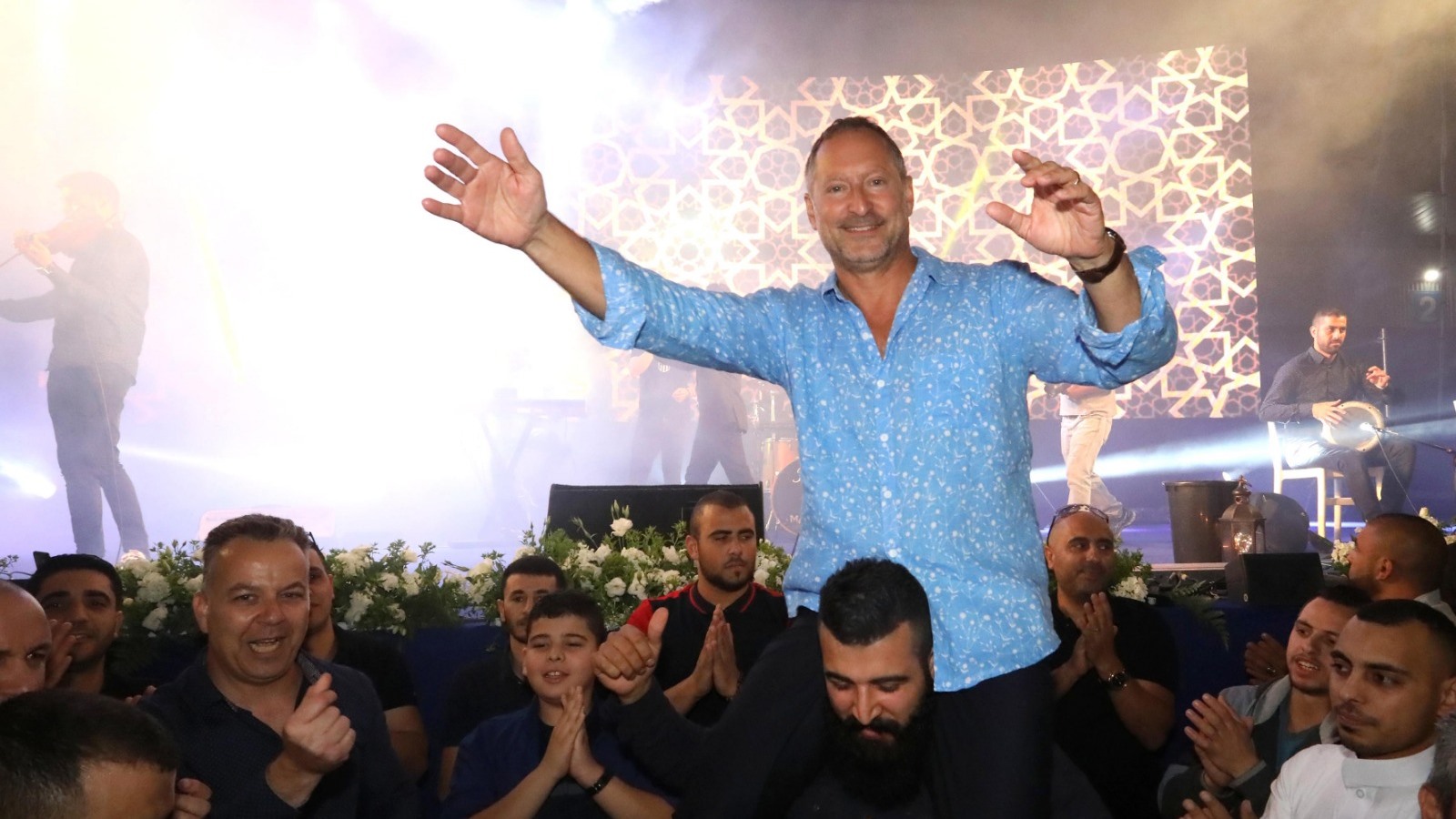
Coexistence was very much in evidence in May, when SodaStream brought together 3,000 Jews, Israeli Arabs, Palestinians and a sprinkling of international visitors for a celebratory Iftar dinner, the largest ever held in Israel.
The carbonation-machine factory in the Negev employs Christians, Jews and Muslims, and the Iftar event marked the end of the month of Ramadan, when Muslims fast during the day.
“The thousands of people who are eating here with us tonight are the light which defeats the darkness, both under missiles and during tense periods,” SodaStream CEO Daniel Birnbaum told the audience at the event.
- A bikejacking that ended well
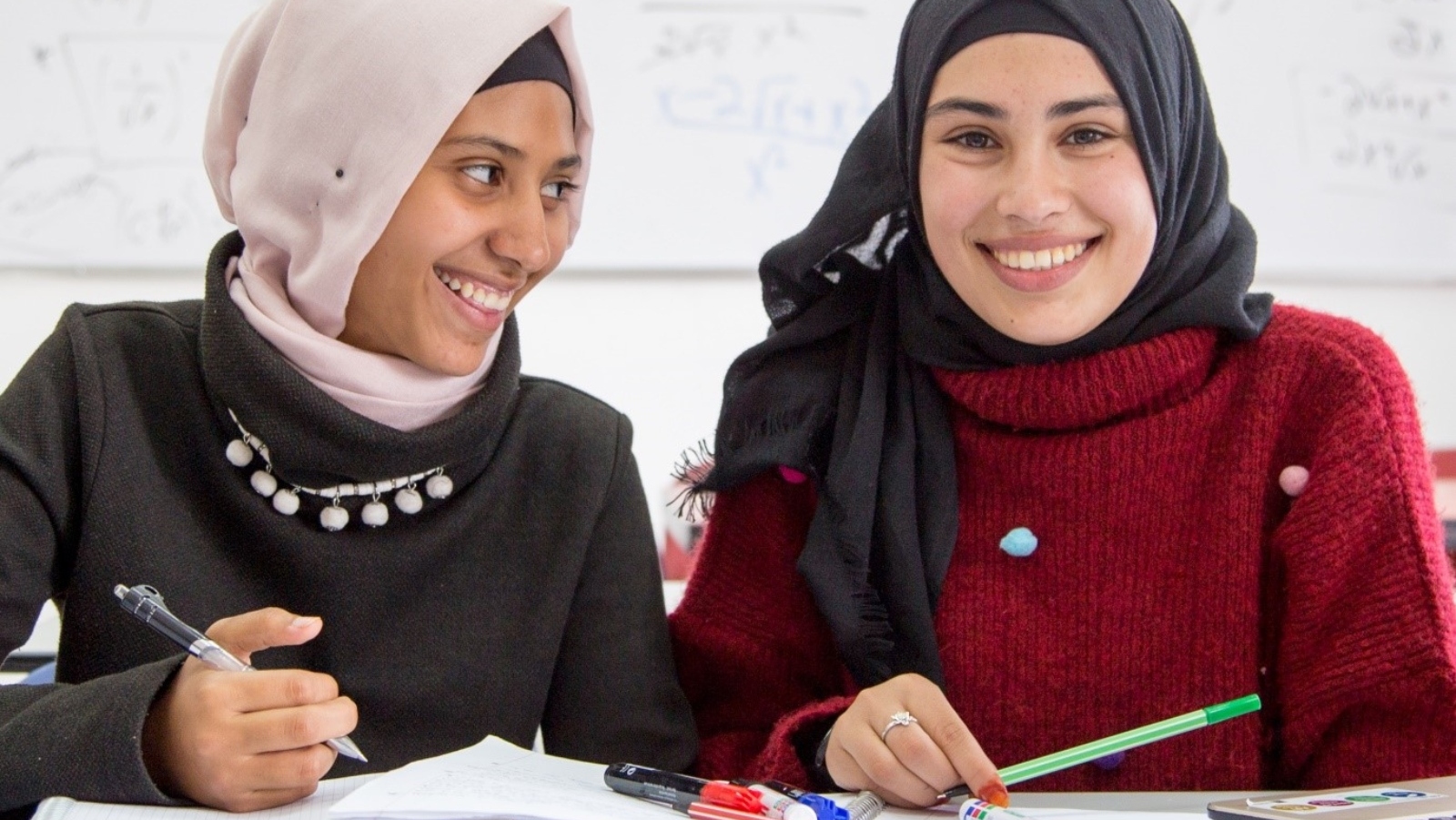
When Israeli Matan Yaffe was ambushed by four Bedouins while riding a motorbike in the Negev desert, they threatened him with a metal bar, but ran off when he pulled out a gun.
This frightening experience could have left Yaffe with lasting animosity, but instead he decided to create an award-winning leadership program for Bedouins in the Negev.
Desert Stars, the nonprofit organization Yaffe founded with his own money, today employs 80 people, and runs four programs including a high school leadership program for 210 students, an empowerment center, and a entrepreneurship incubator.
“By strengthening Bedouin society, I strengthen Israel,” Yaffe says.
Memorable moments
- Eurovision was a blast

Eurovision came to Israel this year for the first time since 1979, and it was magnificent – even if you weren’t a fan. The acts themselves may have been the usual so-so Eurovision fare, but the organization was spectacular.
Madonna came (though most wish she hadn’t), Netta was fabulous, and Tel Aviv went into prime party mode – a setting it does well. But the real winner of this competition? The Shalva Band.
Comprised of young people with disabilities, the Shalva Band was favorite to be Israel’s entry to the competition, but had to drop out when they discovered the finals were on Shabbat. Instead they sang at the second semifinals and had a worldwide audience sniffling emotionally, recognizing that the contest’s motto, “Dare to Dream,” was way more than just a slogan to this band.
- In Israel, there’s no such thing as failure, even when you crash and burn
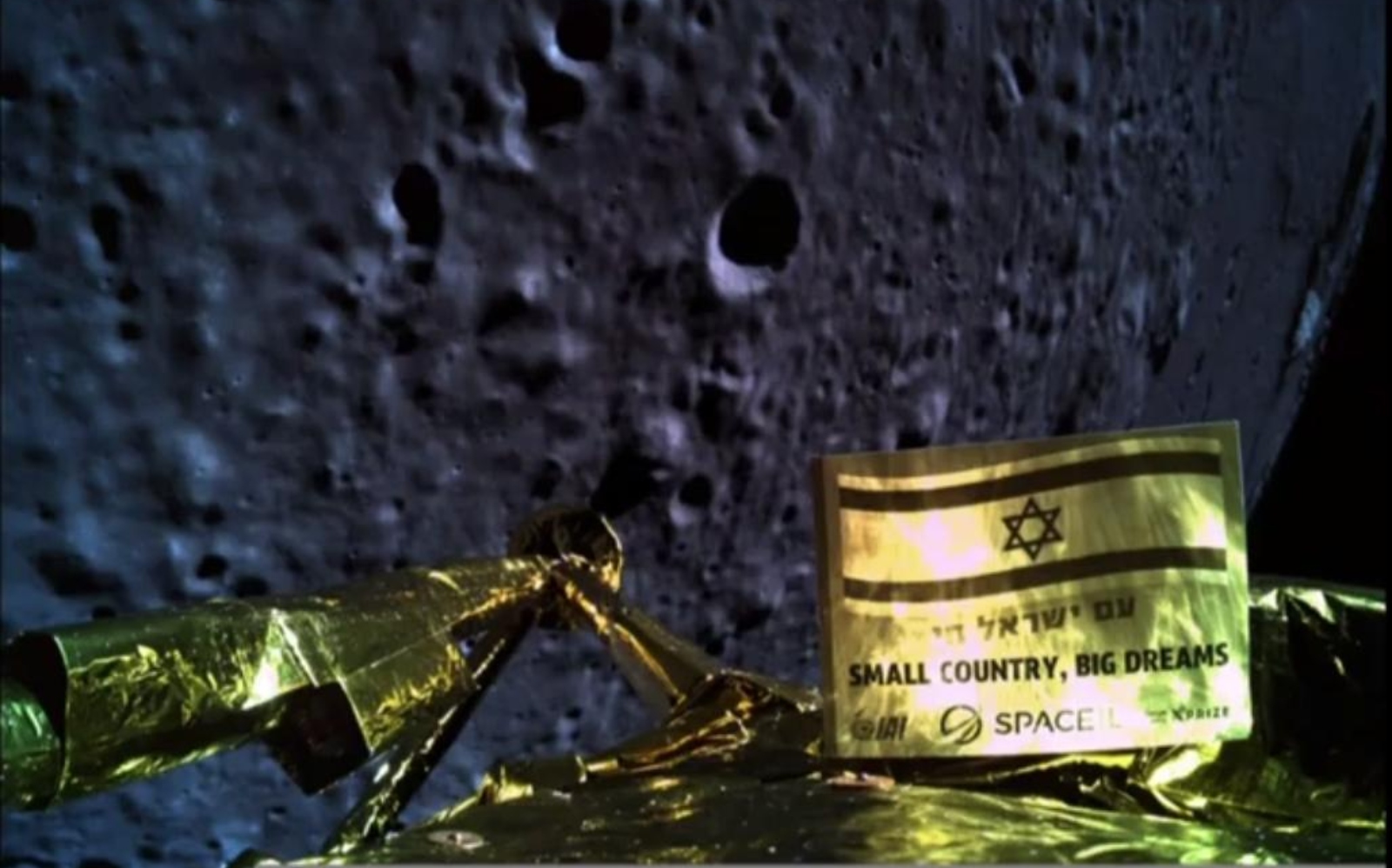
So near, and yet so far. After a great deal of excitement, Israel’s Beresheet unmanned spacecraft did reach the moon, but not quite in the way everyone expected. Instead, moments before it was expected to land, it crashed and burned.
Was it a disappointment? Yes. Was it the end of the effort? No. In true Israeli spirit, Beersheet’s failure was seen as a temporary setback on the road to success. A new moon mission is planned, and there’s even talk of aiming for Mars.
- Save a life, save a soul
When Israeli bride Shachar Kugelmas got married in July, a Muslim paramedic named Muawiya Kabhas tunned the audience at the chuppah with a tale that no-one could forget.
Ten years earlier, as a volunteer for emergency response organization United Hatzalah, Kabha arrived at the scene of a car crash near Petah Tikva and found a young Jewish girl trapped in a car and already declared dead.
But Kabha wasn’t prepared to give up. For 40 minutes he worked on Shachar, and finally – against all the odds –managed to get her heart beating.
United Hatzalah, the Israeli voluntary emergency-response organization that brought Kabha to the accident scene, shared a video of the paramedic telling the story. The bride’s father had invited Kabha to the wedding as a surprise for his daughter.
Amazing! #Muslim medic speaking at #Jewish Chuppah about how he saved the bride in 2009! A must watch! pic.twitter.com/lOT1Wrcd6t
— United Hatzalah (@UnitedHatzalah) July 11, 2019
At the ceremony, Kabha concluded with a thank-you to the emotional bride. “People ask me all the time, ‘How do you keep going after all the death you see in your work?’ The answer is here. Shachar, I am able to continue my work because of you. Because I saved your body, but you saved my soul.”
- Baseball wins big
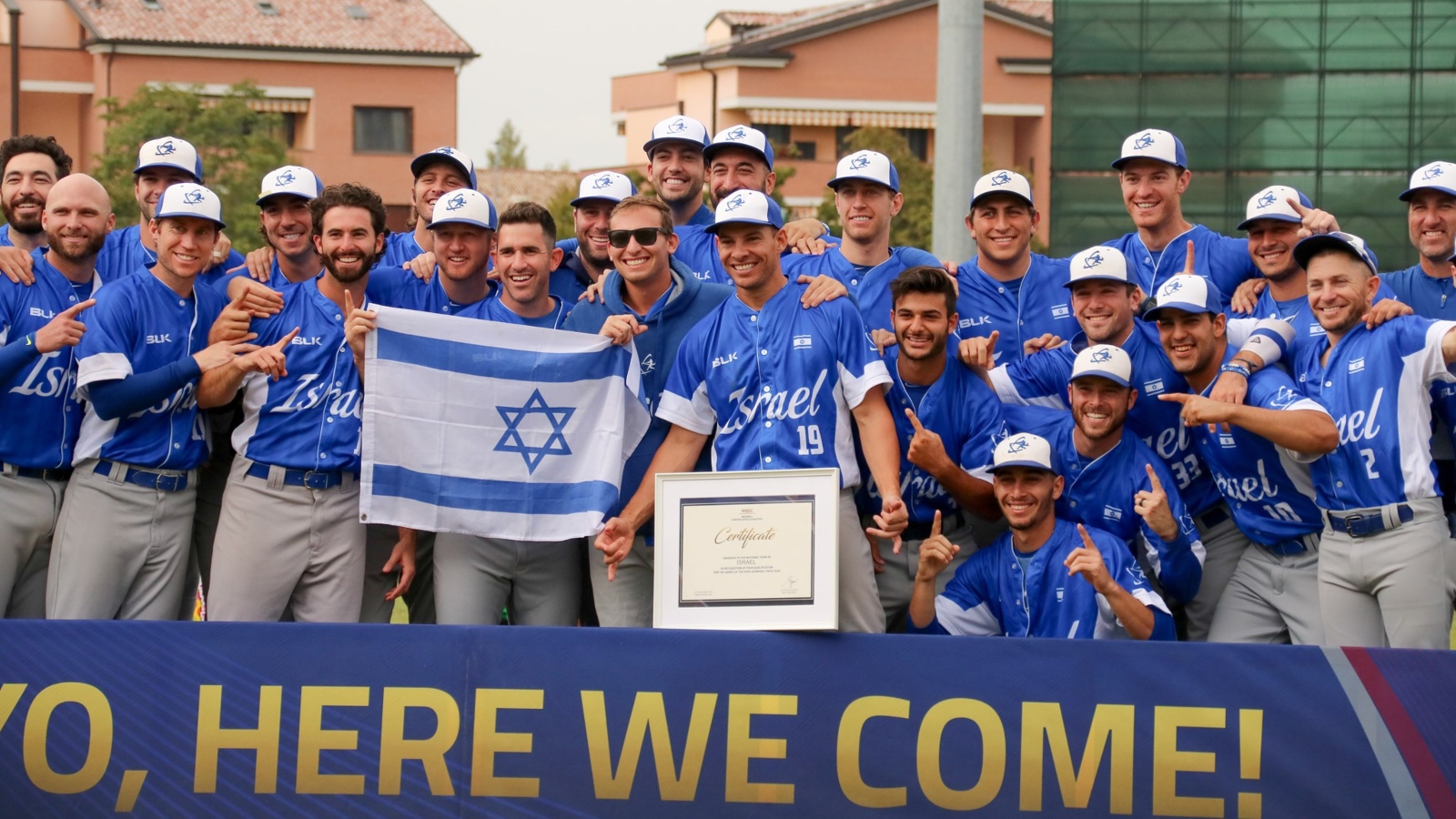
In September, Israel suddenly discovered that it not only had a national baseball team, but that the team had just qualified – against all odds – for the Olympics Games in Tokyo in 2020.
This will be the first time an Israeli team has taken part in the Olympics baseball tournament.The team is a mix of homegrown talent from Israel with Jewish-American college players and some pros, who have taken on Israeli citizenship.
The team may have emerged from seemingly nowhere to most Israelis, but it’s the fruition of a long-term vision by Israel Association of Baseball President Peter Kurz, who has been recruiting top Jewish American players including former major leaguers.
In fact, this wasn’t the only sports achievement of the year. Israel also saw gold wins in judo, sailing, ice-hockey, and at the Paralympics. Who knows what next year’s Olympics may bring?
The light side
- Tel Aviv high-tech goes to the dogs

In a city that has the world’s highest per-capita ratio of pet dogs to people, it’s no surprise that many of those dogs are accompanying their owners to work, and yes of course we had to do an in-depth look at the trend.
Some of the dogs are already famous and have their own Instagram accounts – like Mona the Aussiedoodle, who works at Yotpo, or Gin, a collie that keeps workers at Autodesk entertained.
At property management company Guesty, some 25 dogs help their owners out at work.
This was a subject close to my own heart – Luna, whom I picked up as a puppy from a shelter, keeps me company in my office.
- You never know what to expect in Tel Aviv
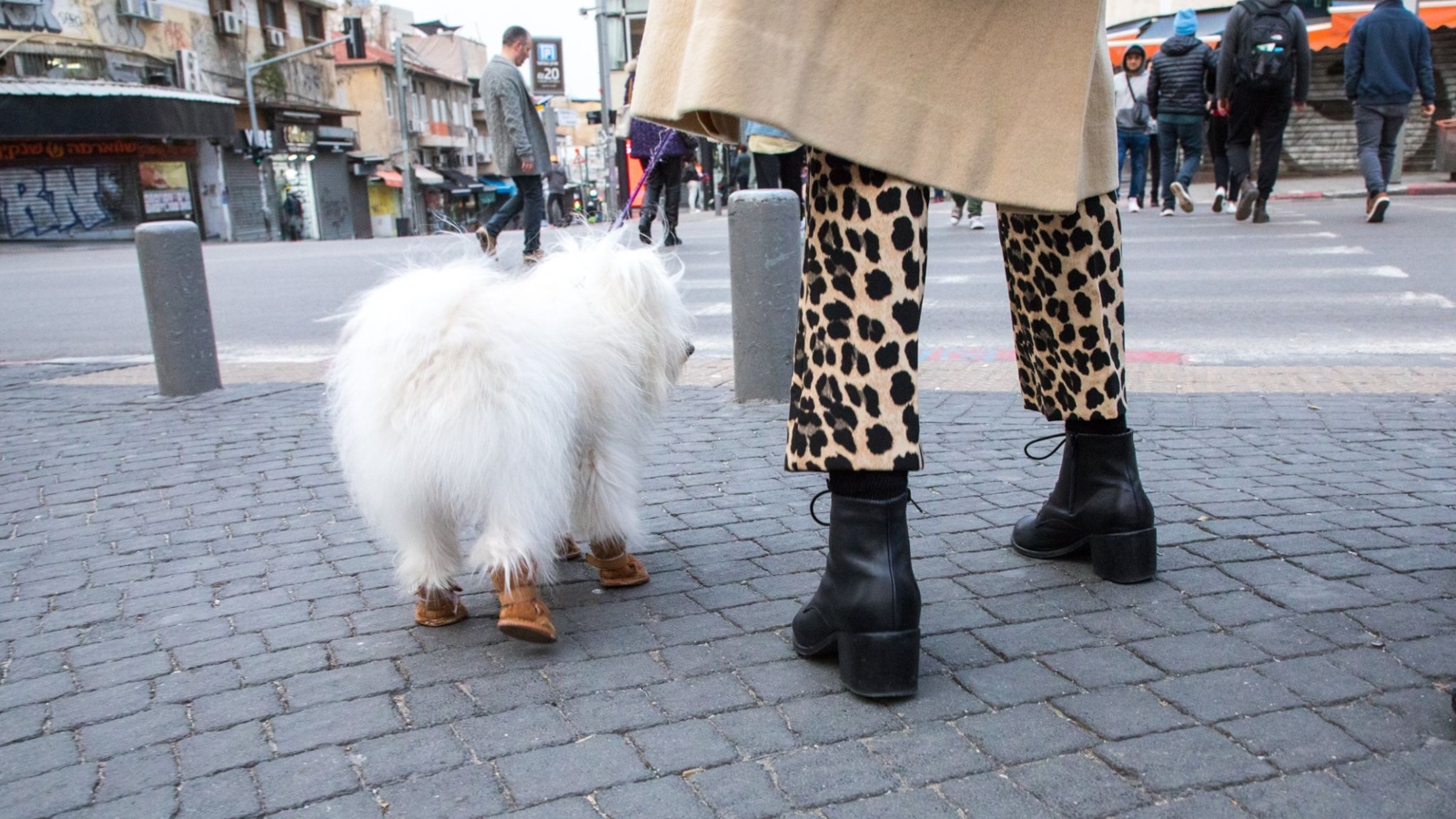
We feature many photographers at ISRAEL21c, showcasing some absolutely incredible talent. One photographer who made a real impact on us all this year was Evyatar Dayan – a software engineer by trade, who goes out onto the streets of Tel Aviv in his spare time to stalk photo ops.
His pictures are funny, spontaneous and delightful, capturing moments that most of us would miss. Truly playful and wonderful work. It’s hard to pick a favorite.
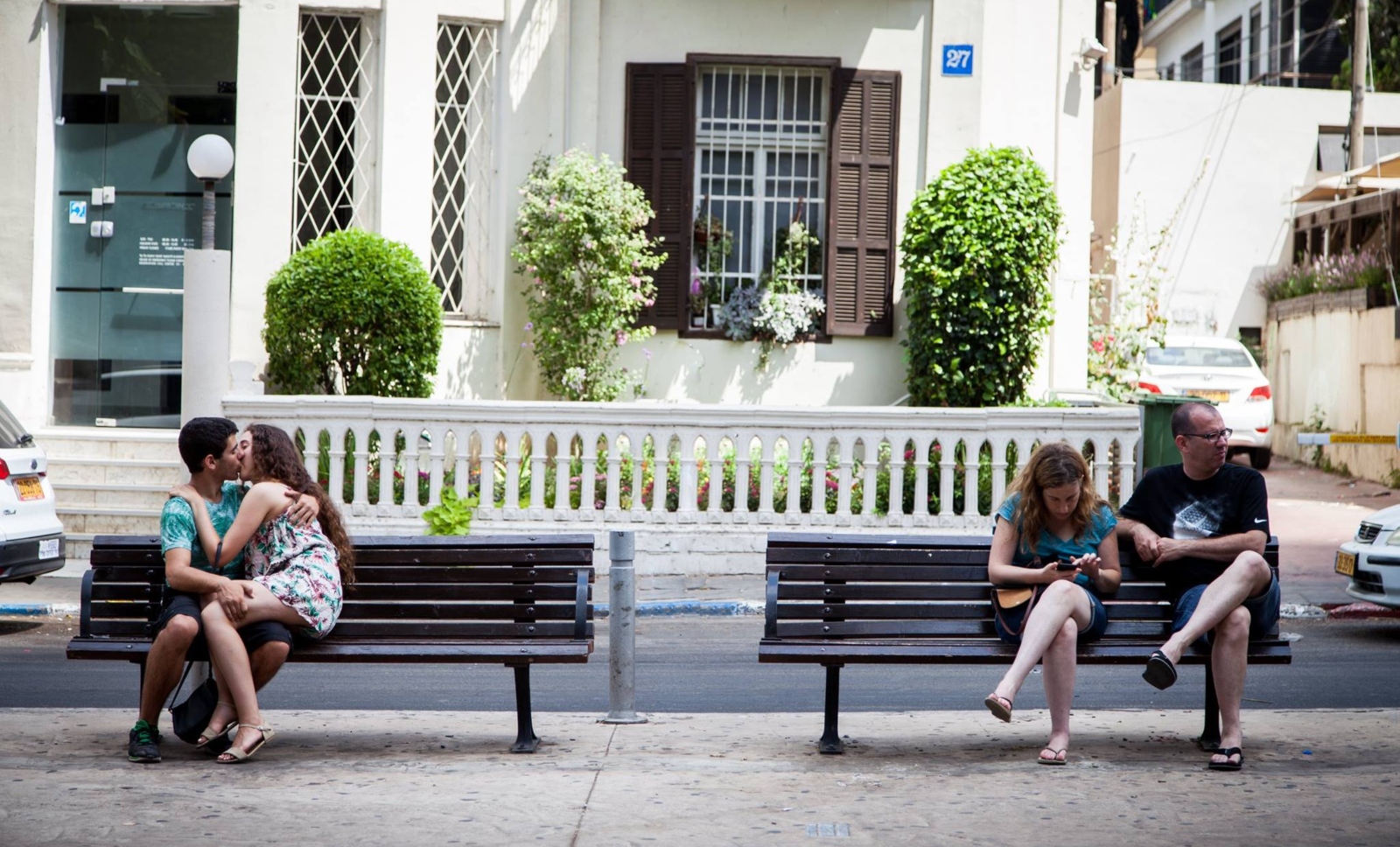
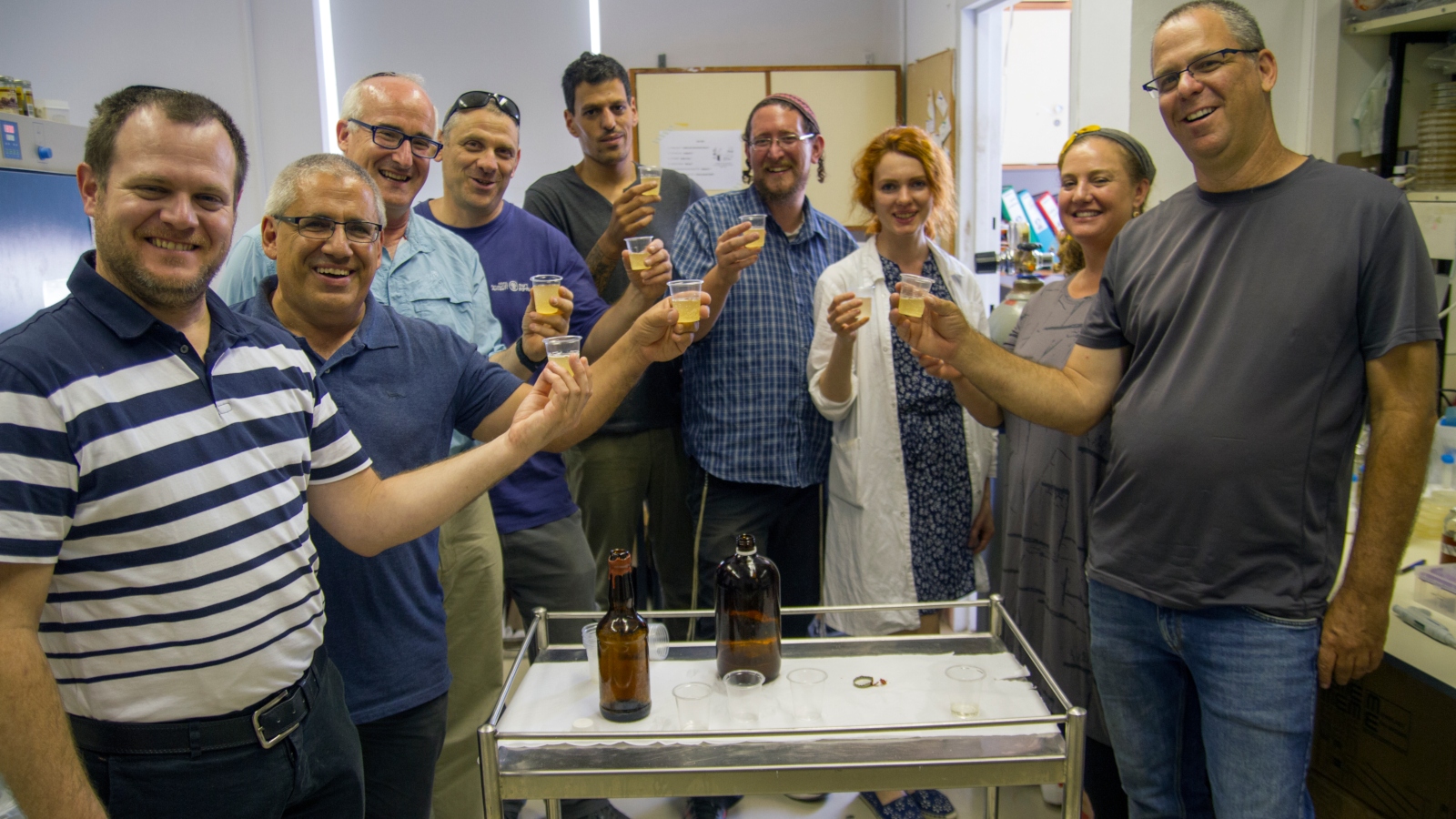
What do you do if you discover 3,000-year-old jugs from an ancient Iron-Age brewery found in Israel?
If you’re a scientist then it’s obvious – you isolate the yeast, and make your own brew.
That’s exactly what a group of Israeli scientists from four Israeli universities, the Dead Sea Arava Science Center, and local beer experts did in May this year.
At a special beer-tasting, reporters were invited to try the kind of beer that may have been drunk by Pharaoh, King David and Jesus. How did it taste? Well, kind of like regular beer supposedly.















